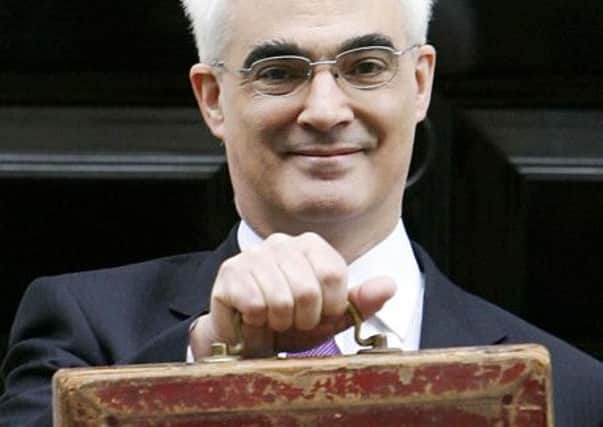Looking back: Alistair Darling career in spotlight


But before his three-year term as chancellor and his role at the head of the Better Together campaign, Alistair Darling had a long political career stretching back to his days as president of the Students’ Representative Council at Aberdeen University, where he was studying law.
His grandfather had been a Liberal candidate and his great uncle, Sir William Young Darling, was Lord Provost of Edinburgh during the war before serving as Tory MP for Edinburgh South for 12 years.
Advertisement
Hide AdAdvertisement
Hide AdBut his own first involvement in politics was as a supporter of the International Marxist Group, before he joined the Labour Party in 1977 at the age of 23.
He became a solicitor in 1978 and was active in Edinburgh’s Labour politics before being elected to Lothian Regional Council in 1982 as member for Haymarket/Tollcross.
The authority was run at that stage by a coalition of Conservatives and the Liberal/SDP Alliance.
Mr Darling campaigned on a wide variety of issues: opposing plans for a St James Centre-style shopping development at Tollcross and criticising a policy which required schools to be broken into more than 20 times before a burglar alarm could be installed.
After Labour won control of the council in 1986, he became transport convener. One of the first actions of the new administration was to cancel the controversial Western Relief Road, which would have linked the current West Approach Road with the M8, bypassing Corstorphine, Gorgie and Dalry. The Tories had signed contracts to start construction of the £44 million road just weeks before the council elections despite Labour’s pledge to scrap the scheme.
Mr Darling was elected MP for Edinburgh Central in 1987, at the same time as party colleague Nigel Griffiths won Edinburgh South. He spoke out on the need for more funding for Edinburgh Royal Infirmary, accused the Scottish Office of a vendetta against Edinburgh because public spending in Glasgow was four times higher, and campaigned to keep Scottish & Newcastle headquarters in the Capital.
Mr Darling married former journalist Margaret McQueen Vaughan in 1986 and the couple have a son, Calum, born in 1988, and a daughter, Anna, born in 1990.
After Labour came to power under Tony Blair in 1997, Mr Darling held a succession of key posts including Chief Secretary to the Treasury, Work and Pensions Secretary and Transport Secretary, winning a reputation for successfully taking troubled departments out of the headlines.
Advertisement
Hide AdAdvertisement
Hide AdHe had sported a beard throughout his political career, but shaved it off in August 1997. He insisted it was his own choice and nothing to do with any pressure from party image-makers – despite stories that Labour leaders wanted high-profile figures to get rid of “suspicious” facial hair.
When Gordon Brown became prime minister in 2007, Mr Darling took over as chancellor.
In his book, Back From The Brink, Mr Darling recalled how the first warning of the banking crisis came one Saturday morning, just before Christmas that year.
“I answered the door at home in Edinburgh,” he wrote. “There on the doorstep was Sir Fred Goodwin, chief executive of RBS, holding a gift-wrapped panettone.”
He had made the short journey from his house in the Grange to the chancellor’s home in Morningside.
“I could see that he was exceedingly tense. Fred doesn’t do small talk and so we sat down and got straight to the point. His message for me was clear – unless the Bank of England put more liquidity into the system, quickly, it would seize up.”
After Labour’s 2010 general election defeat and Gordon Brown’s resignation, Mr Darling resisted calls from some quarters for him to stand for the leadership and returned to the backbenches.
But when the referendum came along, he was recalled to the front line to lead the cross-party Better Together campaign against independence. He enjoyed a surprise victory over Alex Salmond in the first TV debate and declared himself pleased with the “decisive” result of the vote.